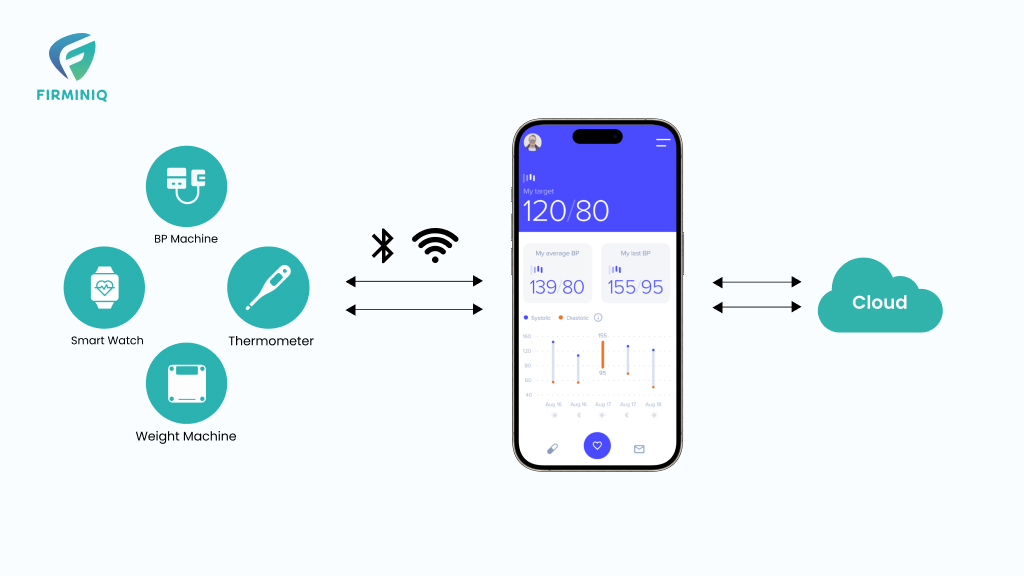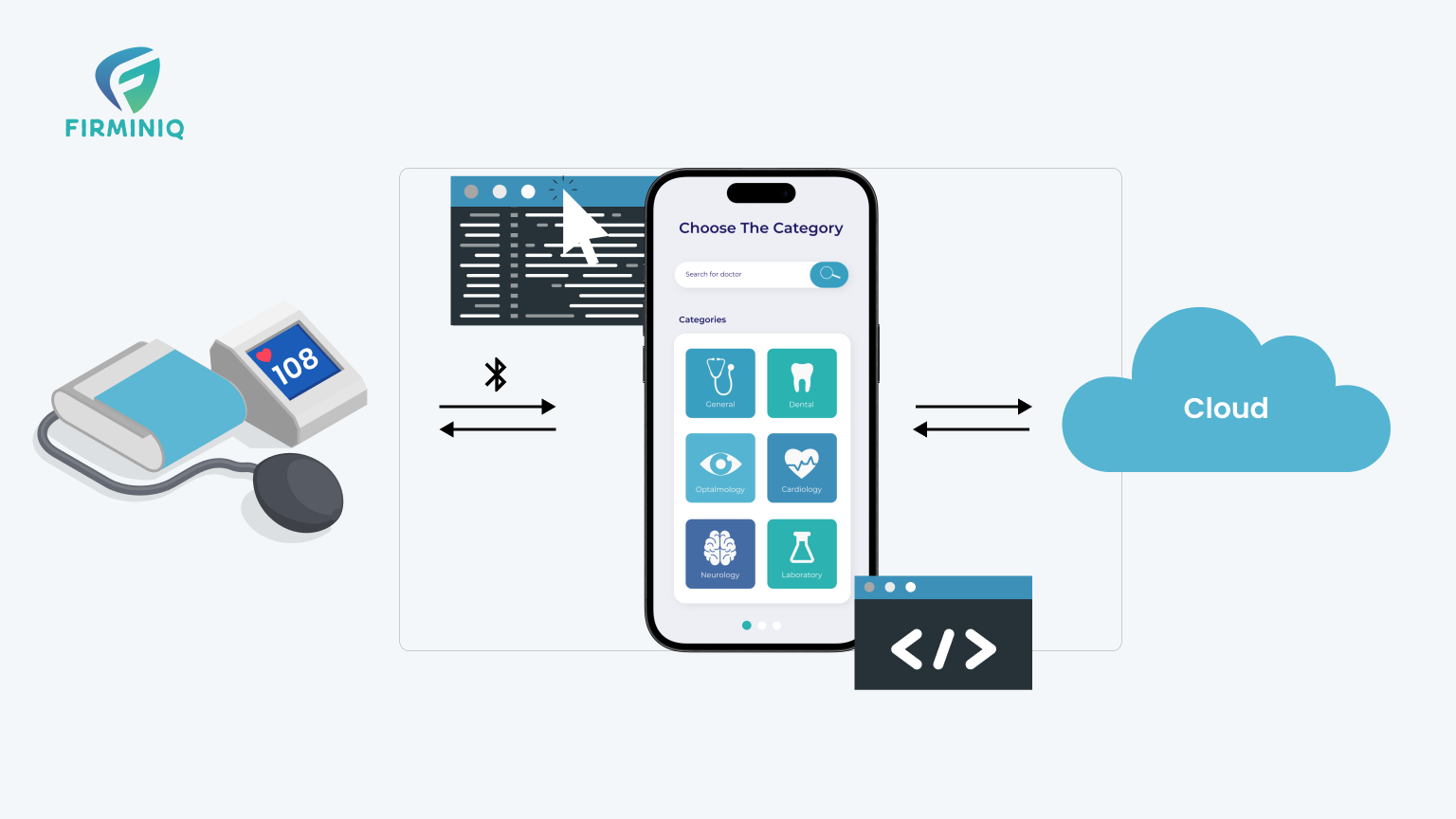The healthcare industry deals with heaps of data including medical devices, EHRs, insurance premiums, lab tests, wearable data, and more. Although paper-loaded clinics and hospitals have been replaced by smart applications, it needs to be easily accessible and maintain elevated levels of data security. And here comes the role of DevOps!
DevOps’ strategic approach to infrastructure management is helping healthcare organizations significantly and is now a foundation for effective healthcare practices. As per Verified Market Research, the DevOps market size was valued at USD 7.01 billion in 2021 and is projected to reach USD 51.18 billion by 2030, growing at a CAGR (Compound Annual Growth Rate) of 24.7% from 2023 to 2030. Also, as of August 2021, 73% of healthcare organizations had adopted DevOps- Help Net Security.
DevOps offers advanced services with continuous processes and reduces the SDLC (Software Development Lifecycle). It ensures swift feature delivery, bug fixes, and updates while reducing time to market. DevOps approach for infrastructure management in healthcare is significantly helping organizations offer a competitive edge with responsive, data-driven, and superior patient care.
As the healthcare industry is patient centric and focuses on data driven solutions, it becomes vital to leave traditional IT behind and implement DevOps to advance innovation and transform healthcare.
Traditional IT and DevOps
In traditional IT team structures, the organizations may regret the complexity of bridging the gap between the development and the operations team, limiting the scaling and production opportunities. Whereas DevOps allows organizations to acknowledge the ever-changing market and an increased collaboration between the development and operation teams. Here is a quick comparison that will give you a clear picture.
| Attributes | Traditional IT | DevOps |
| Culture | When the order is placed for the new server, the development team works on testing. Whereas the operations team works on paperwork for the infrastructure deployment. | After the order placement, the development and operation team work collaboratively for setting up the servers. |
| Data and Speed | The data count for feedback loop is confined to server and if there is a downstream effect, it remains unaddressed. No process is followed. | DevOps team is a small, agile, and innovative team that ensures on-time delivery of solutions. |
| Planning and Organization | The operations team has no idea of the progress of the development team. The development plan is built as per the understanding of development team only without any collaboration. | The development team knows about the progress of developers and is also in touch with the operations team. They work collaboratively and cater to business needs. |
| Data Sharing | With traditional IT, there is an inconvenient data sharing process because of lengthy approvals and processes. | DevOps on the other hand have a dedicated data sharing team that reduces the management time and allows seamless data sharing. |
Importance of DevOps in the Healthcare Industry
1. Enhanced Engagement
Healthcare organizations using CI/CD pipelines (Continuous Integration/ Continuous Delivery) enable the features and solutions to be deployed quickly. It helps address all the patients’ needs and offers quality healthcare services. For example, introduction of self-check-in or other features allows faster patient processing and satisfaction.
When healthcare organizations use robust technologies to satiate the stakeholders’ needs, it leads to enhanced operational efficiency without compromising patient data security.
2. Regulatory Compliance & Information Security
Regulatory compliance in healthcare refers to an organization’s obedience to the laws, regulations as per the processes. Implementing infrastructure as a code is one of the core DevOps practices and uses configuration management techniques for the organizations to automate configuration changes while making them standardized.
3. Improved Infrastructure Efficiency
DevOps allows continuous improvement, faster software delivery, and easy accessibility to data and resources. All these principles contribute towards improved overall efficiency and speed.
4. Automated Daily and Monotonous Tasks
There are processes and tasks in IT that are time-consuming, monotonous and hinders productivity. These might include configuration checks, software installation, database backup, software installation, workload monitoring, and more. These repetitive tasks are automated with the DevOps tools. The approach enables the CI/CD pipeline. It means the repetitive tasks are carried out in the background, allowing the IT team to allocate resources and deliver value to the end user.
5. Accelerate Release with DevOps
In the healthcare sector, organizations want solutions to be launched with the latest advancements as soon as there is something new. Therefore, with the DevOps team implementation, there is better speed to market without sacrificing security. When the processes, tools and operations are in collaboration and silos are disintegrated, the release velocity is accelerated. Moreover, the consumers are satisfied with the timely releases.
Here is a case study where FIRMINIQ helped one of the clients implement DevOps and reduced production down-time and accelerated delivery. The main objective was to streamline code to the infrastructure and employ standard DevOps practices with CI/CD pipelines.
Step-by-Step Guide to Implement DevOps in Healthcare
1. Continuous Planning
It is the first step in DevOps implementation. Examining the operational and development activities, it can be planned as per the DevOps methodology. Throughout this phase, all the technical and human resources, inventory, security, and more are to be checked on and configured. Also, in this phase, the budgetary impact of the development must be planned.
2. Code Repository with Version Control
Version control is one of the top requirements for the developers that coordinate and control coding. Code repository can be tracked along with the changes implemented. Application development implementing DevOps offers an offline copy of the code repository, while the changes are recorded on the main server.
3. Continuous Integration
With Continuous Integration all the changes in the system and new code modules are stored in the central repository. It also enables code sharing among cross departments. Deploying CI tools helps manage application development without any errors of the configuration and integration.
4. Automated Build
Automation is used for the integrated care solutions to script and retrieve code that has been deployed. The recovery is enabled from code repository and is collaborated into binary artifact for periodic testing.
5. Automated Release through Continuous Deployment
The step focuses on delivery and deployment of the software in an automated and continual manner. Continuous deployment ensures the timely releases of healthcare solutions and keeps updating about the production on regular intervals eliminating the lag between coding and customer value.
6. Continual Feedback and Monitoring
Monitoring ensures that the software is performing at its prime level and the system sends feedback to the development and operation team. If there are any problems, a concern is raised and solved in real-time. It offers high-quality application performance.
Achieve Results in a Secure and Affordable Way with us!
The healthcare sector has immense pressure to deliver solutions that are secure and ensure profitability. The highly functional DevOps tools promote robust collaboration between the developers and operations.
Implementing DevOps allows the healthcare providers and hospitals to offer patient centric care and remain competitive in the market. Well, for implementing the DevOps strategy in healthcare you should contact a reputable organization that offers the best DevOps services.
If you think your healthcare organization could benefit with our DevOps implementation services, reach out to us!








